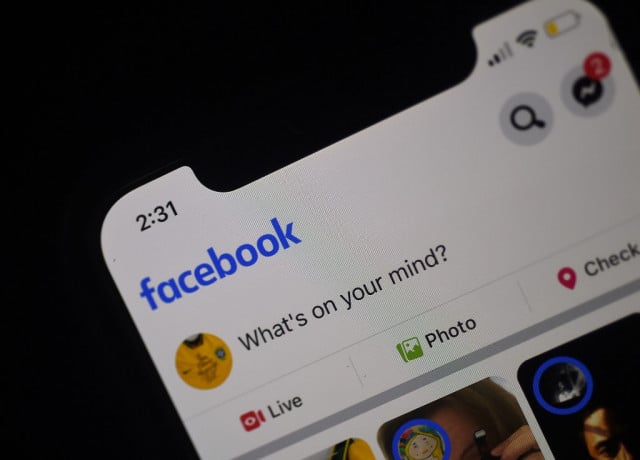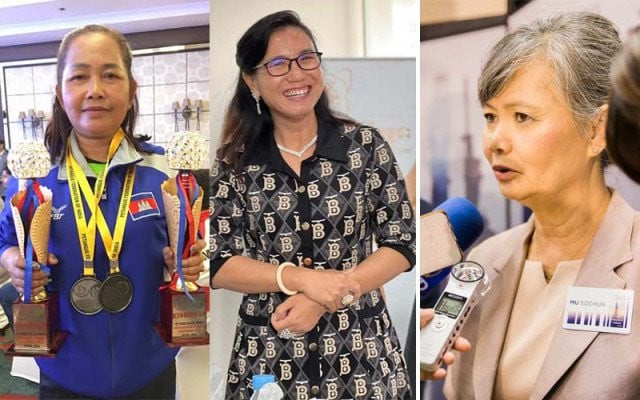Facebook: A useful educational tool

- Socheata Ly
- December 28, 2020 9:47 AM
Technological advancements have immensely transformed our lives, including how we communicate with one another. Social media has become a life-changing technological phenomenon, making interactions and information sharing much more convenient.
Facebook, as a form of social media, is known to be a rich source of entertainment and a useful platform for people to meet and keep in touch virtually.
Besides fun and interactions, people have also started using Facebook for educational purposes, especially those in the education industry such as educators and students; they have turned this social media into a platform to share and expand their knowledge in many ways (Mazman & Usluel, 2010).
This article will explore why Facebook can be an educational tool.
First, Facebook can be used to facilitate communication and information sharing between instructors and students (Shaw, 2017). According to Shaw, any means that allows better and more frequent communication between instructors and students could benefit the educational experience.
A survey by Roblyer et al. (2010) showed that students used Facebook as often as email to communicate, while instructors were unlikely to depend solely on email for communication.
The survey also discovered that students were more willing to ask their questions online through Facebook or email more than in face-to-face classes. Additionally, instructors could even boost their own credibility and connection with students through Facebook (Shaw, 2017). Muñoz and Towner (2011) explained that Facebook profiles could enhance users’ social presence and encourage more personalized interactions, allowing instructors to be more approachable and relatable.
Furthermore, Mazer et al. (2007) suggested that instructors’ Facebook profiles with high self-disclosure could potentially improve students’ motivation and effective learning since they could positively influence students’ perceptions towards instructors and develop an environment that promotes students’ participation inside and outside of the classroom.
Second, Facebook can promote learning and collaboration among peers (Irwin et al., 2012) and develop a sense of community (Shaw, 2017). Students have adopted the use of Facebook to communicate and discuss with one another when they cannot do so in the class.
They can also create group chats when they work in teams in order to share their own ideas and come up with new ideas for their assignments and other group works (Irwin et al., 2012).
It is especially helpful when they cannot meet face to face. Shaw (2017) noted that Facebook can also establish a sense of community between users, possibly enabling more collaboration and sharing of ideas, which fosters learning. Muñoz and Towner (2011) put social constructivist learning theory into use, explaining that more opportunities for dialogue and sharing of ideas resulted in more learning, through both formal learning with fixed curricular structure and informal learning with fewer or no instructions.
Correspondingly, Ractham and Firpo (2011) argued that Facebook could be used to support a community of practice, which is useful for creating situations, activities, and contexts to share implicit knowledge. Communities of practice are groups of people with common concerns or passions who aim to improve their learning by interacting with one another.
These communities allow learners to share their previous experiences and learn from the experiences of others, which can help encourage a culture of learning.
Lastly, Facebook has the potential to help students develop essential skills, including computer literacy, writing, and communication skills (Shaw, 2017). According to Muñoz and Towner (2011), literacy practices are progressing beyond the printed medium to welcome the digital realm, with new terms arising such as “new media literacy,” “digital literacy,” and “twenty-first century literacy.”
These skills can be achieved when Facebook is integrated into the educational framework. Apart from computer literacy skills, Facebook can be used to help students improve their writing and communication skills (Shaw, 2017). Based on a study by Greenhow and Robelia (2009), students who use social networking sites like Facebook are innovative in their self-expression and adapt their communication choices depeding on the audience. Kabilan et al. (2010) found in their survey study that Facebook could be a platform for unfiltered communication, especially for English learners. Users would be able to concentrate on purposeful communication, not on the formal mechanism of language learning. In addition, informal writing on Facebook inspires creativity and expression without much pressure for perfection.
In conclusion, Facebook can be utilized as an educational tool for both formal and informal learning. In the context of Cambodia, for formal learning, Facebook can be a platform for instructors and students to communicate and share important updates and study materials, especially through Facebook Messenger and Facebook Groups.
For informal learning, Facebook can be easily accessed to keep up with educational updates such as news from the Ministry of Education, Youth and Sport. Many study resources could also be found from a number of trusted sources and educators. According to www.education.fb.com, Facebook has provided proper resources through their “Educator Hub” for educators to enhance their teaching experience and learning communities for learners with various opportunities to expand their knowledge.
If incorporated properly into educational guidelines, Facebook can contribute to enhancing the quality of education in Cambodia by providing an online learning community where teachers and students can communicate and share teaching and learning resources.
Socheata Ly is an intern at Cambodia Education Forum. She has recently graduated with a bachelor’s degree in International Relations from the Department of International Studies, the Institute of Foreign Languages, Royal University of Phnom Penh.
This article was originally published by Cambodian Education Forum on December 19, 2020.















